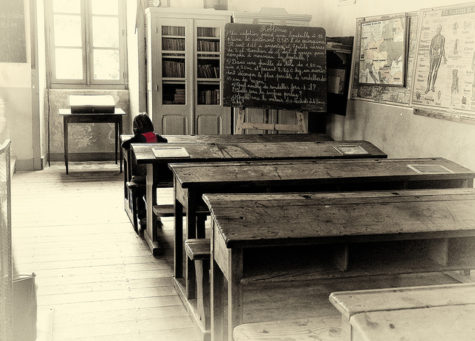Inspired by guest Veronique Greenwood‘s three-part series (part 1, part 2, part 3) about learning a foreign language, some of the contributors to LWON volunteered for a week’s worth of essays about their own encounters with the challenges of linguistics.

This week, we’ve been looking at what it’s like to learn a new language as an adult. Kids seem to pick up languages easily, and I’d always hoped I could give mine a new language when they were young. (So far, my attempts have been less than successful—I spoke my poor excuse for Spanish to my oldest son until he was about two, and he finally said, “Mama, stop talking like that!”)
For some kids, the language they’re learning is more appealing than in my case—so much so that they start losing their native language. That’s what Joana Moscoso and Tatiana Correia learned was happening in the UK with kids whose parents came from Portugal. The two researchers had made the same journey themselves as adults—originally from Portugal, both came to the UK for their PhDs, Moscoso in microbiology, Correia in materials physics.
The two researchers were concerned—they knew that being bilingual could provide many benefits. People who speak more than one language may have greater mental flexibility, have better memories and better ability to concentrate. They also have may have better job opportunities. These researchers didn’t want students to lose their native language—but sometimes, they’d stop speaking to their parents in Portuguese. “They think their home language is obsolete, that it’s only used for boring things like brushing your teeth,” Moscoso says.
So the pair rounded up some colleagues and planned a science class for kids in an afterschool Portuguese class. They designed it to be like speed dating with a scientist; kids would get a chance to talk with every scientist about their research. They’d make it feel casual, so kids felt comfortable asking any question they had. And they’d do it all in Portuguese.
Since their first session three years ago, the program now called Native Scientist has reached more than 1,000 school kids. They’ve also expanded to other countries and other languages, working with groups in France and Germany. They hope to expand to the Netherlands, and the United States.
Correia and Moscoso say the classes are rewarding for the scientists, because they get to talk with kids who are enthusiastic about their work. For the kids, they hope that not only will they expand their vocabulary in the given language and learn something about science, but see that their language matters—and can be used for much more than just brushing your teeth.
And while they say it’s too early to see the real impact of the program, their sessions have been extremely popular. Some parents of kids in the Portuguese classes now sign their kids up specifically so they can meet scientists. And one student who’d been inspired by the researchers’ visit contacted the pair after their session and they stayed in touch; he’s now studying physics at King’s College London.
**
Image by Keith Ellwood via Flickr/Creative Commons